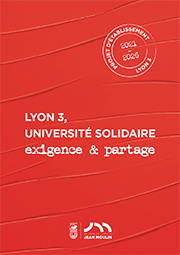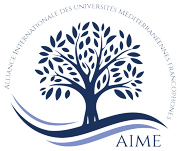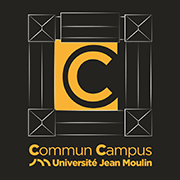AccueilRechercheProgrammes et productions scientifiquesThèsesThèses soutenuesThèses soutenues - 2006-2021Thèses soutenues - 2018
-
Partager cette page
- Recherche,
BOICHARD Léa
La poétique du parler populaire dans l’œuvre barrytownienne de Roddy Doyle : étude stylistique de l’oralité et de l’irlandité
Publié le 15 mars 2019 – Mis à jour le 15 mars 2019
Thèse en Langues, littératures et civilisations du monde anglophone, soutenue le 4 décembre 2018.
Ce travail interroge les relations entre langue écrite et langue orale et les effets de la représentation de l’oralité et du dialecte dans l’écriture littéraire. Plus spécifiquement, il établit un cadre théorique d’analyse stylistique permettant de faire émerger la poétique du parler populaire dans l’œuvre de Barrytown de Roddy Doyle. Cette étude s’articule autour de trois chapitres. Les deux premiers sont à visée théorique, et ont pour objectif de mettre en place les outils stylistiques, linguistiques et littéraires à partir desquels l’étude du corpus est abordée. Ainsi, après un retour diachronique et synchronique sur les rapports qu’entretiennent les deux media de communication orale et écrite, nous établissons un cadre d’analyse stylistique de la représentation de l’oralité et du dialecte dans la littérature. Nous étudions ensuite cette problématique plus spécifiquement dans le contexte irlandais, puisque la littérature et la culture irlandaises sont marquées par la tradition orale. Cela nous conduit à une description détaillée du dialecte anglais-irlandais sous l’angle de la grammaire, du lexique et de l’accent. Nous abordons enfin les effets de la représentation de l’oralité et de l’irlandité dans l’œuvre barrytownienne de Roddy Doyle et faisons émerger la poétique du parler populaire qui l’anime.
This study focuses on the relations between spoken and written language and on the effects created by the representation of orality and dialect in literary writing. More specifically, it proposes a theoretical framework of stylistic analysis which allows for the study of the poetics of popular language in Roddy Doyle’s Barrytown novels. This study is divided into three chapters. The first two chapters aim to define the stylistic, linguistic and literary tools that are used in the third chapter in order to carry out the corpus analysis. This study starts with a diachronic and a synchronic overview of the relationship between the oral and written media of communication. A workable framework for the stylistic analysis of the representation of orality and dialect in literature is then established. The second chapter considers this issue in an Irish context. Indeed, a strong oral tradition has always been present in Ireland and its impact is still felt in literature and culture. The linguistic situation in Ireland is studied from the point of view of grammar, lexicon and accent. Finally, the third chapter applies the framework previously presented and explores the effects created by the representation of orality and Irishness in Roddy Doyle’s Barrytown novels. It finally exposes the poetics of popular language.
This study focuses on the relations between spoken and written language and on the effects created by the representation of orality and dialect in literary writing. More specifically, it proposes a theoretical framework of stylistic analysis which allows for the study of the poetics of popular language in Roddy Doyle’s Barrytown novels. This study is divided into three chapters. The first two chapters aim to define the stylistic, linguistic and literary tools that are used in the third chapter in order to carry out the corpus analysis. This study starts with a diachronic and a synchronic overview of the relationship between the oral and written media of communication. A workable framework for the stylistic analysis of the representation of orality and dialect in literature is then established. The second chapter considers this issue in an Irish context. Indeed, a strong oral tradition has always been present in Ireland and its impact is still felt in literature and culture. The linguistic situation in Ireland is studied from the point of view of grammar, lexicon and accent. Finally, the third chapter applies the framework previously presented and explores the effects created by the representation of orality and Irishness in Roddy Doyle’s Barrytown novels. It finally exposes the poetics of popular language.
Mots-clés : stylistique, oralité, orature, littérature irlandaise, Roddy Doyle, encodage dialectal, dialecture, phonostylistique, anglais irlandais, tradition orale.
Keywords : stylistics, orality, orature, Irish literature, Roddy Doyle, dialect encoding, dialecture, phonostylistics, Irish English, oral tradition.
Directeur(trice) de thèse : Manuel JOBERT
Membres du jury :
- M. JOBERT Manuel, Directeur de thèse, Professeur des universités, Université Jean Moulin Lyon 3,
- Mme PILLIERE Linda, rapporteur, Professeur des universités, Université Aix-en-Provence,
- Mme NI RIORDAIN Cliona, rapporteur, Professeur des universités, Université Sorbonne Nouvelle Paris 3,
- Mme PRZEWOZNY-DESRIAUX Anne, Maitre de conférences habilitée à diriger des recherches, Université Toulouse Jean Jaurès,
- M. SIMPSON Paul, Full professor, Université Liverpool, Royaume Uni.
Président du jury : Linda PILLIERE
Documentation
Mise à jour : 15 mars 2019







